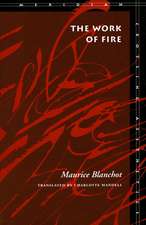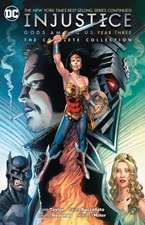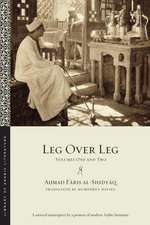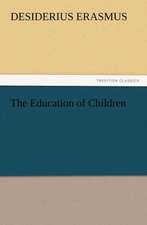Praise of Folly: Newly Translated and Annotated - Also included Pope Julius Barred from Heaven, ‘Epigram against Pope Julius II’ and a selection of his Adages: Evergreens
Autor Desiderius Erasmus Traducere de Roger Clarkeen Limba Engleză Paperback – 11 sep 2013
| Toate formatele și edițiile | Preț | Express |
|---|---|---|
| Paperback (9) | 42.75 lei 3-5 săpt. | |
| CreateSpace Independent Publishing Platform – | 42.75 lei 3-5 săpt. | |
| Penguin Books – 24 noi 1993 | 52.62 lei 22-33 zile | +18.16 lei 6-12 zile |
| Alma Books COMMIS – 11 sep 2013 | 58.75 lei 3-5 săpt. | +14.00 lei 6-12 zile |
| CREATESPACE – | 59.15 lei 3-5 săpt. | |
| Globe Pequot Publishing Group Inc – mai 1994 | 87.39 lei 3-5 săpt. | |
| ALPHA EDITION – 30 iun 2024 | 93.10 lei 3-5 săpt. | |
| Lector House – 9 mar 2020 | 58.44 lei 6-8 săpt. | |
| Echo Library – 30 iun 2009 | 66.40 lei 39-44 zile | |
| TREDITION CLASSICS – 31 oct 2011 | 130.35 lei 6-8 săpt. |
Din seria Evergreens
-
 Preț: 51.38 lei
Preț: 51.38 lei -
 Preț: 58.75 lei
Preț: 58.75 lei -
 Preț: 51.98 lei
Preț: 51.98 lei -
 Preț: 44.70 lei
Preț: 44.70 lei -
 Preț: 51.38 lei
Preț: 51.38 lei -
 Preț: 42.18 lei
Preț: 42.18 lei -
 Preț: 45.48 lei
Preț: 45.48 lei -
 Preț: 55.92 lei
Preț: 55.92 lei -
 Preț: 40.07 lei
Preț: 40.07 lei - 6%
 Preț: 47.62 lei
Preț: 47.62 lei -
 Preț: 48.47 lei
Preț: 48.47 lei -
 Preț: 51.86 lei
Preț: 51.86 lei -
 Preț: 51.63 lei
Preț: 51.63 lei -
 Preț: 43.84 lei
Preț: 43.84 lei -
 Preț: 40.03 lei
Preț: 40.03 lei -
 Preț: 44.88 lei
Preț: 44.88 lei -
 Preț: 53.89 lei
Preț: 53.89 lei -
 Preț: 44.76 lei
Preț: 44.76 lei -
 Preț: 58.75 lei
Preț: 58.75 lei -
 Preț: 45.79 lei
Preț: 45.79 lei - 5%
 Preț: 48.09 lei
Preț: 48.09 lei -
 Preț: 49.99 lei
Preț: 49.99 lei - 9%
 Preț: 35.79 lei
Preț: 35.79 lei -
 Preț: 47.84 lei
Preț: 47.84 lei -
 Preț: 47.57 lei
Preț: 47.57 lei -
 Preț: 48.60 lei
Preț: 48.60 lei -
 Preț: 51.38 lei
Preț: 51.38 lei -
 Preț: 45.39 lei
Preț: 45.39 lei -
 Preț: 45.52 lei
Preț: 45.52 lei -
 Preț: 60.92 lei
Preț: 60.92 lei -
 Preț: 45.52 lei
Preț: 45.52 lei -
 Preț: 46.75 lei
Preț: 46.75 lei -
 Preț: 40.12 lei
Preț: 40.12 lei -
 Preț: 44.13 lei
Preț: 44.13 lei -
 Preț: 38.21 lei
Preț: 38.21 lei -
 Preț: 52.58 lei
Preț: 52.58 lei -
 Preț: 46.55 lei
Preț: 46.55 lei - 5%
 Preț: 43.11 lei
Preț: 43.11 lei -
 Preț: 48.85 lei
Preț: 48.85 lei -
 Preț: 39.10 lei
Preț: 39.10 lei -
 Preț: 45.49 lei
Preț: 45.49 lei -
 Preț: 35.03 lei
Preț: 35.03 lei -
 Preț: 41.72 lei
Preț: 41.72 lei -
 Preț: 47.31 lei
Preț: 47.31 lei -
 Preț: 41.66 lei
Preț: 41.66 lei -
 Preț: 45.77 lei
Preț: 45.77 lei - 5%
 Preț: 48.09 lei
Preț: 48.09 lei - 5%
 Preț: 48.66 lei
Preț: 48.66 lei -
 Preț: 39.62 lei
Preț: 39.62 lei
Preț: 58.75 lei
Nou
Puncte Express: 88
Preț estimativ în valută:
11.24€ • 11.82$ • 9.29£
11.24€ • 11.82$ • 9.29£
Carte disponibilă
Livrare economică 27 martie-10 aprilie
Livrare express 12-18 martie pentru 23.99 lei
Preluare comenzi: 021 569.72.76
Specificații
ISBN-13: 9781847493248
ISBN-10: 1847493246
Pagini: 320
Ilustrații: black & white illustrations
Dimensiuni: 128 x 198 x 25 mm
Greutate: 0.34 kg
Editura: Alma Books COMMIS
Colecția Alma Classics
Seria Evergreens
Locul publicării:London, United Kingdom
ISBN-10: 1847493246
Pagini: 320
Ilustrații: black & white illustrations
Dimensiuni: 128 x 198 x 25 mm
Greutate: 0.34 kg
Editura: Alma Books COMMIS
Colecția Alma Classics
Seria Evergreens
Locul publicării:London, United Kingdom
Notă biografică
Desiderius Erasmus (1469-1536) devoted his life to the study of theology and the defence of Christian ideals. He rose to a prominent position in the Church, and achieved fame for his writings. He played an important part in history by fostering the intellectual climate for the Reformation, and many of his ideas have a legacy which endures to the present day.
Recenzii
Erasmus searched for reconciliation between Faith and Reason, refusing not only the dogmas of Faith, but the dogmas of Reason as well.
Praise of Folly, still a masterpiece of slyly subversive wit, was in a sense the first best-seller, read covertly under desks and sniggered over by countless trainee monks and priests.
I am well aware that what I have had to say on the problem of peace is not essentially new. It is my profound conviction that the solution lies in our rejecting war for an ethical reason; namely, that war makes us guilty of the crime of inhumanity. Erasmus of Rotterdam and several others after him have already proclaimed this as the truth around which we should rally.
From the terrible hate storm of his age Erasmus has salvaged this intellectual gem, his faith in humanity, and on this small burning wick Spinoza, Lessing and Voltaire - and all Europeans past and present - could light their torch.
Praise of Folly, still a masterpiece of slyly subversive wit, was in a sense the first best-seller, read covertly under desks and sniggered over by countless trainee monks and priests.
I am well aware that what I have had to say on the problem of peace is not essentially new. It is my profound conviction that the solution lies in our rejecting war for an ethical reason; namely, that war makes us guilty of the crime of inhumanity. Erasmus of Rotterdam and several others after him have already proclaimed this as the truth around which we should rally.
From the terrible hate storm of his age Erasmus has salvaged this intellectual gem, his faith in humanity, and on this small burning wick Spinoza, Lessing and Voltaire - and all Europeans past and present - could light their torch.
Cuprins
Praise of Folly Preface to the 1993 Edition
Introduction
1. The importance of the Praise of Folly
2. Erasmus, scholastics, humanists and reformers
3. The Praise of Folly, Dorp and the spirituality of Erasmus
Select Bibliography
Praise of Folly
Prefatory Letter
Moriae Encomium, that is, the Praise of Folly
Letter to Maarten Van Dorp, 1515
Index
Introduction
1. The importance of the Praise of Folly
2. Erasmus, scholastics, humanists and reformers
3. The Praise of Folly, Dorp and the spirituality of Erasmus
Select Bibliography
Praise of Folly
Prefatory Letter
Moriae Encomium, that is, the Praise of Folly
Letter to Maarten Van Dorp, 1515
Index
Descriere
Descriere de la o altă ediție sau format:
Erasmus ranges from light-hearted jibes to vehement denunciation of the theologians and churchmen, monastic life and the condition of the Church, and then seriously expounds the virtues of the Christian way of life. This work is one of the best satirical classics of the Renaissance.
Erasmus ranges from light-hearted jibes to vehement denunciation of the theologians and churchmen, monastic life and the condition of the Church, and then seriously expounds the virtues of the Christian way of life. This work is one of the best satirical classics of the Renaissance.


















